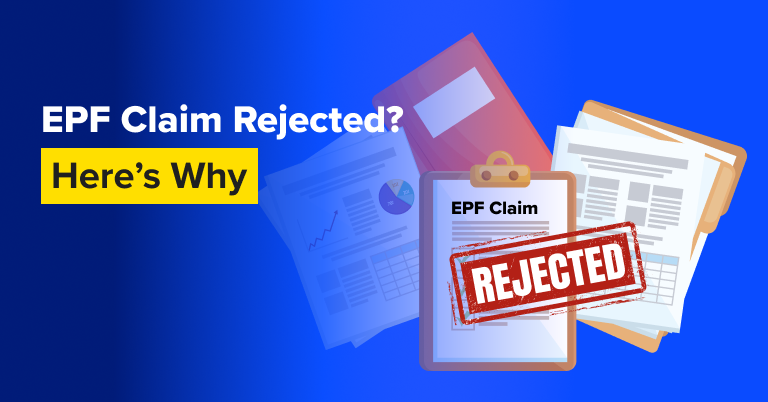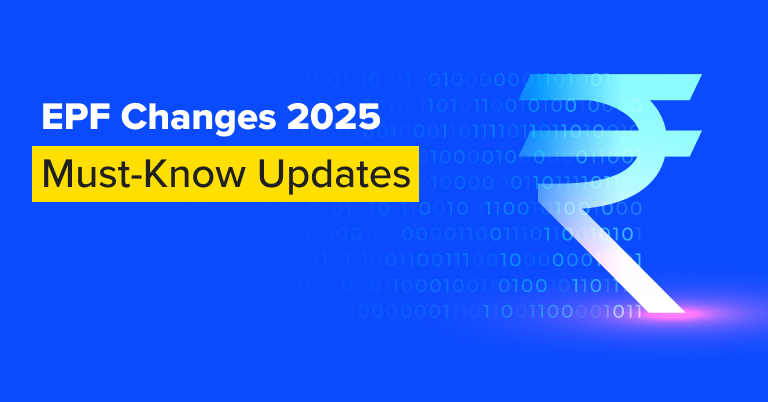- How long can you keep money in an EPF account after leaving your job?
- When does an EPF account become inoperative?
- What if you leave your job before retirement age?
- What happens to an inoperative EPF Account?
- Does your EPF Account earn Interest without contributions?
- The old tax provision for Income Tax on PF Interest
- New tax provision for Income Tax on PF Interest
- Can You Continue EPF Contributions After Retirement?
- Tracking Your EPF Account with the MobiKwik App
The Employees’ Provident Fund (EPF) is a vital savings scheme for salaried employees, where 12% of their basic salary is mandatorily contributed each month. The interest earned on these contributions is tax-free up to a certain limit, and the maturity amount is also exempt from tax under specific conditions. However, many are unaware of the finer details of how the scheme works, especially after retirement or when leaving a job.
In this article, we will explore key aspects of the EPF scheme, such as how long the funds can remain in the account after retirement or job cessation, whether interest continues to accumulate, and what happens if the account is left untouched for an extended period.
Key Points to know about your EPF Account after retirement or job cessation
How long can you keep money in an EPF account after leaving your job?
- Your EPF account remains active as long as there are regular contributions from your salary.
- If you stop working, either due to retirement or job cessation, the EPF scheme allows you to withdraw up to 75% of the balance after one month of leaving the job and 100% of the balance and close the account after two months of leaving the job.
- Alternatively, you can keep the account open, and the money untouched, up until the account becomes inoperative.
When does an EPF account become inoperative?
- According to the Ministry of Labour and Employment, an EPF account becomes inoperative after the retirement age of 58. This was amended via a notification dated November 11, 2016 🔗
- As per the new rule, an EPF account becomes inoperative after the age of 58, which is 36 months after the retirement age of 55.
- If someone retires at age 58, their EPF account becomes inoperative when no more monthly contributions are made.
- If someone retires earlier, at 56 or 57 years old, the EPF account will remain active until they turn 58.
Read This – Reasons Why Your EPF Claim May Get Rejected by EPFO
What if you leave your job before retirement age?
If you stop working before reaching the retirement age, the account will remain operative for three years from the date contributions cease.
For example, if your last EPF contribution was made in July 2024, and you stopped working at the age of 40, the account will stay active until July 2027.
What happens to an inoperative EPF Account?
- Once the account becomes inoperative, it will no longer earn interest.
- If the money remains unclaimed in the inoperative account for seven years, it will be transferred to the Senior Citizens’ Welfare Fund.
- After 25 years of remaining unclaimed in the fund, the amount will be handed over to the central government.
Does your EPF Account earn Interest without contributions?
- Yes, the EPF account will continue to earn interest at the rate notified by the finance ministry as long as it remains operative.
- However, once the account becomes inoperative, it will no longer accumulate interest.
- According to EPF Scheme 1952, interest will not be credited to an account once it becomes inoperative, as per paragraph 72(6) of the scheme.
The old tax provision for Income Tax on PF Interest
- Before the amendments introduced by the Finance Act 2021, all interest earned on the Employee Provident Fund (EPF) was completely tax-free.
- There was no tax-free limit on the interest earned from EPF before the changes made by the Finance Act 2021.
- Section 80C of the Income Tax Act, 1961 allowed EPF contributions to be claimed as a tax deduction, up to a limit of ₹ 1.5 lakhs per financial year.
- Employer contributions to the EPF were tax-exempt up to 12% of the employee’s salary, as per the PF income tax rules.
- Any PF contributions exceeding 12% of the salary by the employer were considered taxable.
Read This – EPFO: An Overview of the Scheme and Its Benefits
New tax provision for Income Tax on PF Interest
- A new amendment in the Finance Act has made interest earned on EPF contributions taxable starting from FY 2021-22.
- For government employees with no employer contributions:
- Tax exemption is applicable on individual contributions up to ₹ 5 lakh.
- Interest earned on contributions exceeding ₹ 5 lakh will be taxable.
- For other employees (private sector and others):
- Contributions up to ₹ 2.5 lakh are exempt from tax.
- Interest earned on contributions above ₹ 2.5 lakh will be taxable.
- Additional change:
- If the employer’s combined contributions to NPS, EPF, and superannuation funds exceed ₹ 7.5 lakh, the excess amount will be taxable to the employee.
Can You Continue EPF Contributions After Retirement?
- If you continue working after age 58, you can still contribute to the EPF, but not to the Employees’ Pension Scheme (EPS).
- Employee and employer contributions will continue to be deposited in the EPF account, but EPS contributions will cease after age 58.
Tracking Your EPF Account with the MobiKwik App
Managing your EPF account can be a hassle, especially when tracking contributions and interest earned. With the MobiKwik app, you can easily monitor your EPF account using your UAN (Universal Account Number). The app allows you to:
- Track monthly credits to your EPF account.
- Keep an eye on the interest earned on your balance.
- Stay informed about your EPF status and updates, all from your smartphone.
Download the MobiKwik app today and take control of your EPF account with just a few taps!



